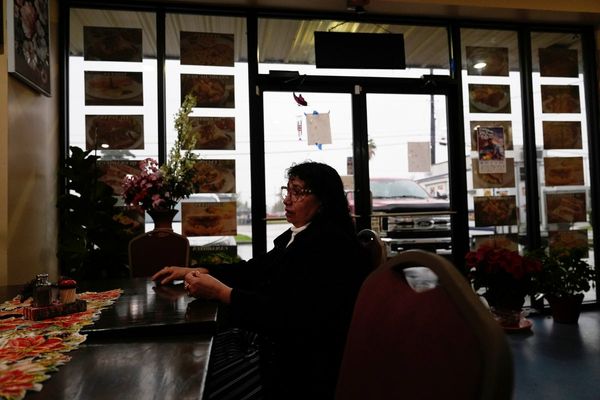ONLINE supermarket shopping is fuelling Britain’s plastic waste crisis because packaging is less visible to consumers, according to new research.
Nearly half of UK householders underestimate how much plastic they throw away each week, a phenomenon researchers call “plastic blindness”.
Those who relied most heavily on online grocery deliveries were especially likely to be shocked by the volume of waste they consumed.
“We believe plastic blindness is a coping strategy,” explains lead author Dr Kate Whitman of the Revolution Plastics Institute. “Consumers have little power to go completely plastic-free, so ignoring the waste we generate can feel necessary for peace of mind. But when that waste becomes impossible to overlook, concern rises and people become more willing to engage in reuse and refill systems.
“Online retailers could help by making packaging impacts visible at the point of purchase and by offering clear reuse or refill alternatives to single-use packaging.”
The findings combine three datasets gathered over two years: the UK’s biggest-ever citizen science project on plastic waste, The Big Plastic Count (2022 and 2024), which tracked household plastic use across two seven-day periods; a follow-up survey of more than 8000 participants, capturing attitudes to recycling, reuse and refill systems and a Greenpeace petition, which measured whether participation in the count influenced public action in support of an ambitious Global Plastics Treaty.

On average, households disposed of 23 plastic items per person per week – 13 “soft” plastics such as wrappers and film lids, and 10 “hard” plastics such as yoghurt pots.
Soft plastics accounted for around 30% more waste. Almost half of participants, 45%, admitted they discarded considerably more plastic than they expected.
Researchers found a direct link between online shopping frequency and the degree of surprise at waste levels.
“Those who shop online were the most unconscious consumers in terms of plastic consumption,” adds Dr Whitman. “But once confronted with the reality, people were shocked and that shock can be harnessed as a catalyst for change.”
The study also showed that awareness campaigns can mobilise both behaviour change and political action.
Participation in The Big Plastic Count correlated with a surge in signatures on a Greenpeace petition demanding stronger measures at UN negotiations for a Global Plastics Treaty.
In April 2024, after results from the count were published, petition signatures increased by 350% compared with the previous month. Participants were 10 times more likely to sign than non-participants.
“By forcing people to confront their own use of plastic, we’ve shown that citizen science can be a catalyst not only for personal change but for collective action as well,” said Professor Cressida Bowyer, deputy director of the Revolution Plastics Institute at the University of Portsmouth. “As a result, we’ve found a measurable increase in political engagement, a powerful signal to policymakers.”
The survey also revealed a strong appetite for reuse and refill schemes. Some 41% of respondents ranked clear environmental information among their top three factors influencing adoption, ahead of hygiene or brand familiarity.
Researchers argue that supermarkets and policymakers now have a big opportunity to use online shopping platforms to promote reuse and refill schemes, particularly since online shoppers are among the least conscious of their plastic impact. They also call for mandatory, standardised recycling labels to cut through confusion and misleading claims.
“People feel powerless because they have no choice but to buy what’s on the shelves,” said Professor Bowyer. “Evidence from our study shows they are ready to support systemic change, but they need policymakers and retailers to step up. Awareness is only the first step; turning it into action requires top-down measures.”







